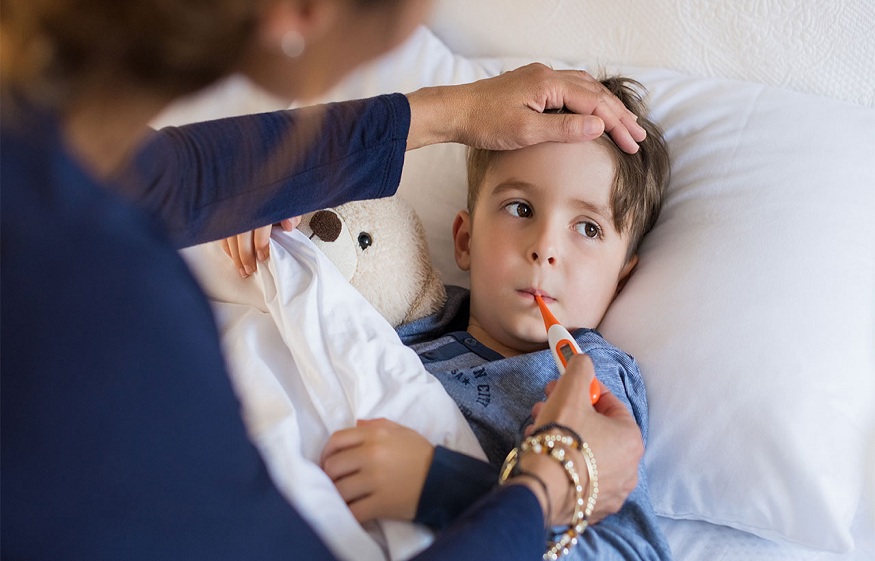When is the child considered to have polyuria?

When parents come for reasons related to an alleged urinary pathology, such as the concern that their child pees many times a day and even at night, it is somewhat complicated for me at first to specify what they consider them ‘many times and, above all, determine the amount of urine volume in 24 hours.
And it is that quantifying the urinary volume is complicated when the child is less than two years old, who is still wearing diapers and, therefore, is still able to control the sphincters. For this reason, in addition to asking about family history, the doctor must carry out an exhaustive physical examination and rely on a series of paraclinical tests that will help me reach an accurate diagnosis, take appropriate action and manage to solve the pathology.
The average urinary volume in childhood is 1 to 3 ml/kg/hour. When this amount is more significant, we can speak of Polyuria. Still, the fact of Urinating many times a day, without exceeding the average volume, is not considered that the child has Polyuria, so it is essential to know other terms that are related to this pathology:
Polydipsia
When fluid intake is excessive, it is closely related to Polyuria since it could cause an increase in urine volume in hemodynamically stable children, or it may be a compensatory mechanism for Polyuria.
Pollakiuria
It is when the frequency of micturition is higher than usual, unrelated to the urine volume, and can occur in large polyurias or when the bladder capacity is small.
Nocturia: The child gets up at night more than once to urinate and can be nocturnal Polyuria or a small bladder capacity.
The mechanisms by which an excessive loss of water through the urine occurs can be several: Inadequate reabsorption of water at the level of the renal tubules (primary polydipsia due to an alteration of the thirst centre, congenital or acquired pathologies of the kidney and tumours, traumas or drugs) and the impossibility of rescuing solutes, producing osmotic or gradient diuresis (diabetes mellitus, kidney failure, tubulopathy, loss of minerals: sodium, chloride, potassium, bicarbonate, phosphorus).
In the consultation, during the interrogation of the parents, it is also essential to focus on the pathological history of the child, looking for diseases that could condition the existence of Polyuria, such as:
-
- Hypoplastic or poorly developed kidneys
- Congenital obstruction of the urinary tract
- Chronic renal insufficiency
- Acute cystitis
- Diabetes mellitus or diabetes insipidus
- Pathomania is a behavioural disorder in which the child compulsively drinks a lot of water, which leads to secondary Polyuria due to excessive intake.
The first thing is to take a good medical history of the patient, emphasising the pathological history of the child (urinary infections, diabetes, neurological disorders, head trauma, intracranial tumours, meningitis, hydro electrolytic imbalance, alteration in London-stature and psychomotor development, state nutrition and hydration) and family history.
After the first consultation, the procedure to follow would be:
- Make a thorough physical examination, giving importance to heart rate, ventilatory rate, central venous pressure, and presence of oedema, ascites or pleural effusions.
- And request complete blood biochemistry analysis, venous blood gas analysis and urine test of the first and second urination in the morning to determine electrolytes in the urine.
After the diagnosis, your treatment will depend on the cause of Polyuria.
Recommendations regarding this pathology are:
– Consult the paediatrician immediately if you observe or if the child refers to abundant or persistent urination, even if there is enuresis when the child urinates the bed.
– Pending if you also have other symptoms such as fever, weakness, cramps, headache, vomiting, or dysuria.
– Do not self-medicate and offer infusions, herbal tea, or branches, as it could aggravate kidney disease.
The child’s response is variable, depending on his age. At first, he didn’t mind wetting the bed. Afterwards, he begins to worry, partly due to the anxiety and concern shown by his parents. However, some children, on the contrary, may react transgressively to attract attention or impose their criteria.
When the child is older, it is easier for him to become discouraged when he sees that he does not improve and, above all, when he realises that enuresis conditions for his outings and, consequently, his social life. Occasionally, he will feel discouraged and prevented from going on an excursion, sleeping at a friend’s house or inviting him to sleep over at his house, going to summer camp etc. You can become embarrassed when you are with other children and fall into low self-esteem. It can lead the child to develop emotional problems such as anxiety and depression. The child usually asks for the collaboration of her parents and siblings to keep their problem secret.
If the treatment is effective, it progresses positively, and the children usually immediately take an attitude of commitment and satisfaction with the results. Therefore, an attitude of appreciation for small successes should be encouraged.








